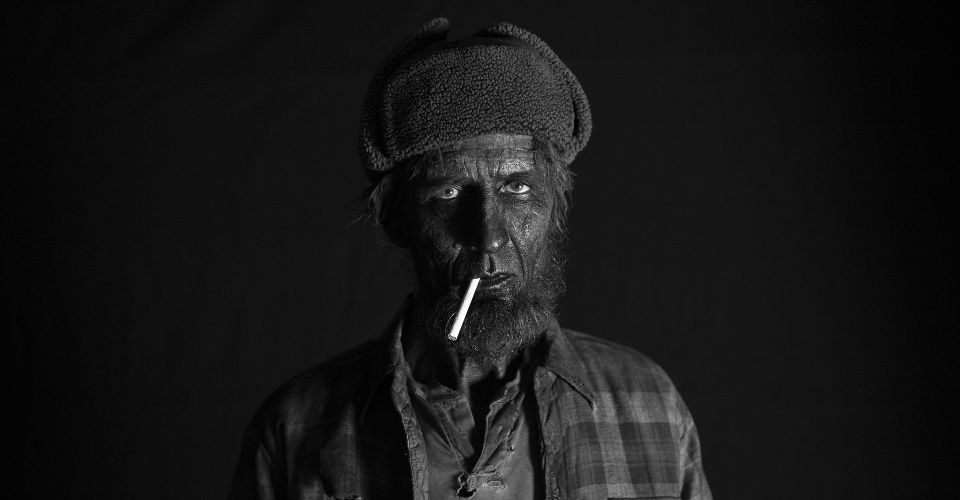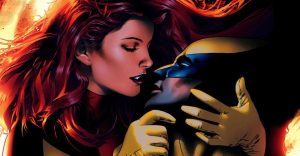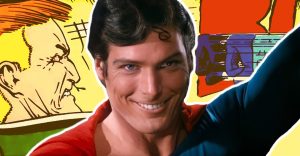Twin Peaks: The Woodsman’s “This Is The Water…” Poem Meaning

What does the Woodsman’s cryptic poem “This is the water and this is the well” mean on Twin Peaks: The Return? Much has been written about the lasting impact Twin Peaks had on the TV landscape. The co-creation of David Lynch and Mark Frost, the series saw an FBI agent investigate the murder of teenager Laura Palmer in the titular town. The show was unlike anything before it, bringing a cinematic sheen to the small screen while blending various genres, including thriller, soap opera and horror.
The first season of Twin Peaks was acclaimed for its freshness, but a growing impatience from the network and viewers for Laura’s murder to be solved forced Lynch to reveal the killer early in season 2. This hurt the show, with interest quickly waning until it was cancelled at the end of the season. Lynch’s dark prequel film Fire Walk With Me also flopped the next year, and the franchise appeared to be done. Lynch, Frost and most of the cast later reunited for 2017’s Twin Peaks: The Return.
This revival picked up with Agent Cooper finally escaping from the Red Room, but Twin Peaks: The Return’s story was in no rush to meet fan expectations. The new show may have utterly baffled some viewers but it also received praise and featured some fantastic sequences and episodes. Chief among these was the downright experimental “Episode 8,” which opens with Cooper doppelganger Mr. C being shot before he’s resurrected by the nightmarish “Woodsmen,” before flashing back for a lengthy, stunning sequence revolving around the first nuclear bomb being tested in the New Mexico desert.

Years later in 1956, this appears to have led directly to the creation of Woodsmen. The main Woodsman in this Twin Peaks: The Return episode is played by Robert Broski, who emerges from the desert and asks a couple for a light for his cigarette in the most terrifying way imaginable. He later wonders into a local radio station, and after cracking the skulls of some employees with his bare hands, broadcasts the following poem “This is the water, and this is the well. Drink full, and descend. The horse is the white of the eyes, and dark within.” This causes everyone listening to fall asleep, with some kind of frog/moth thing later entering the mouth of a sleeping girl.
Since Lynch isn’t one to explain his work, there are many, MANY interpretations of what this eerie chant means. Possibly the best explanation – or at least the one that makes the most sense – comes from YouTube channel Twin Perfect, whose video essay Twin Peaks ACTUALLY EXPLAINED tries to decode the meaning behind the franchise. For the Woodsman’s Twin Peaks: The Return poem, the video points to the show itself being about the medium of television, which is largely fuelled by “consumable” violence such as crime procedurals.
It’s tricky to concisely summarise the essay’s breakdown of the Woodsman and what he represents, but broadly, since Twin Peaks itself is a TV dream powered by electricity – a recurring motif in the show – the Woodsmen are thus needed to provide the telephone poles that power that dream. They are blackened by the soot from the fire of television violence, and they emerge from the fear created by that first nuclear test. Those eggs of fear literally hatch in 1956 in the shape of those frog/moth creatures, with radio and television airwaves allowing them to give form to that sense of fear in the air, which on the show is represented by BOB and his lust for violence.
The Woodsman’s “This is the water and this is the well” poem from Twin Peak: The Return thus means drink from the well of fear and descend into the unending dream of fear and violence provided by TV, and his hypnotic reading is what renders listeners to enter that dream state. Of course, not even that reading is certain as Lynch will never confirm or deny the poem’s meaning, but it certainly makes sense.
About The Author


















